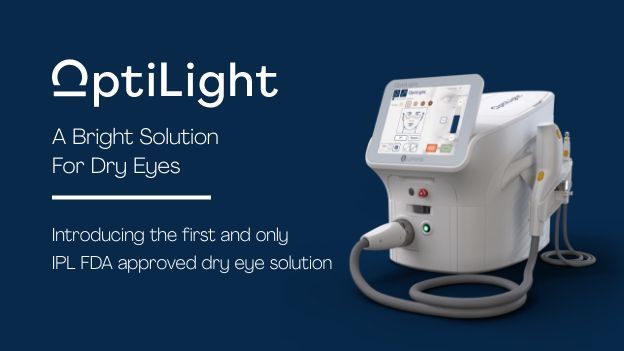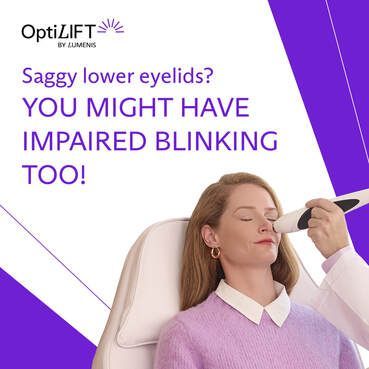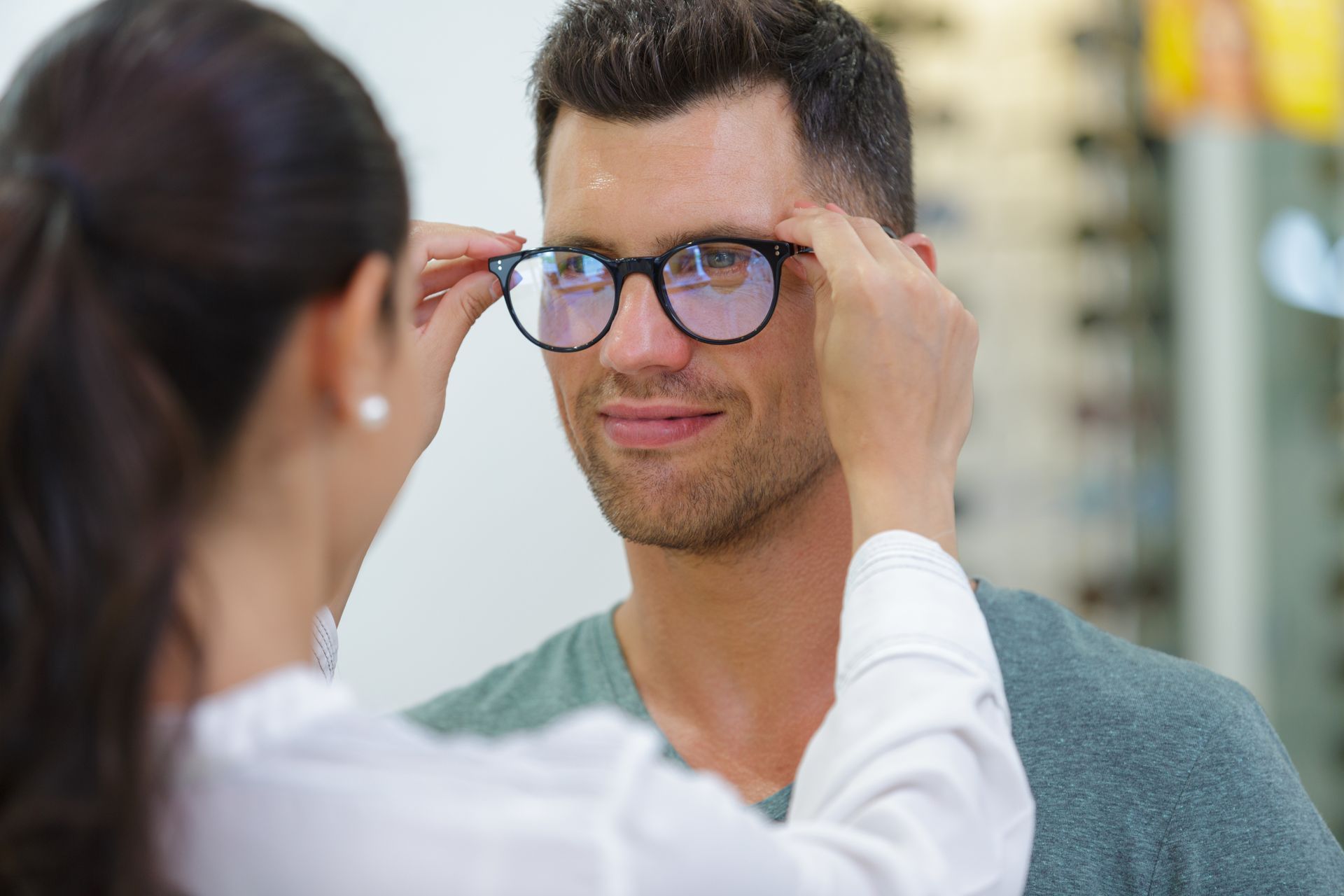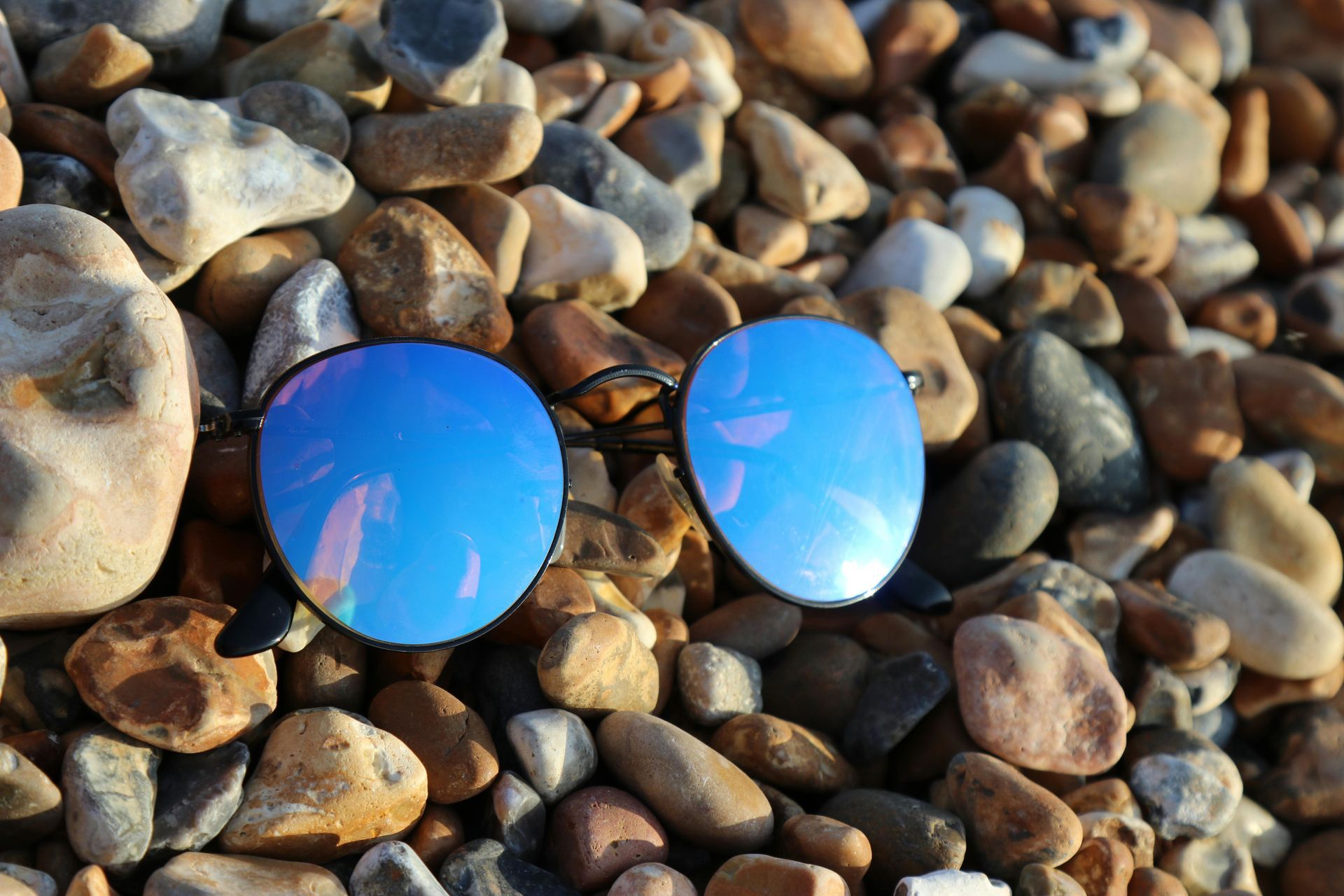Eye Health
Eye Care Tips & Resources from Your Elk River Eye Doctors
At Elk River Eye Doctors, we exist to help you maintain eye health throughout your life, from dealing with everyday issues to navigating more serious conditions. Check out the following eye care tips and resources, and let us know if you have any additional questions about eye health!
Dry Eye Treatments (IPL & RF)
Intense Pulse Light (IPL) is a treatment method that uses bursts of light energy to treat several skin conditions. It's also been found to be effective in treating dry eye disease. These pulses of light can target and break down the blockages in the meibomian glands, allowing them to produce and release more oil into the tears. This helps to improve tear film stability and reduce dry eye symptoms.
Radio Frequency treatment uses energy waves to heat the tissue under the skin. This heat stimulates the body’s natural healing process, promoting collagen production and improving blood flow. When applied to the eyelids, RF can help to unblock the meibomian glands and improve tear production.


The Importance of Ultraviolet (UV) Protection
UV radiation is common in sunlight and some artificial sources. Even a single day spent in the sun without proper UV protection can lead to photokeratitis, a temporary but painful “sunburn of the eyes.” Symptoms of this condition include eye pain, redness, watery eyes, blurry vision, light sensitivity, and a gritty sensation in the eyes. And while photokeratitis usually only lasts hours to a few days, long-term exposure to UV radiation can increase your risk of cataracts, eye cancer, pterygium, and macular degeneration.
To protect yourself from the short- and long-term effects of UV radiation, you should always wear UV-blocking sunglasses when spending time outdoors. The American Optometric Association specifically recommends sunglasses that:
- Block 100% of UVA and UVB radiation.
- Screen out 75% to 90% of visible light.
- Have lenses that are matched in color and free of distortion and imperfection.
- Have gray lenses for proper color recognition.
Some contact lenses may also offer limited UV protection. Ask us about the right contacts for your lifestyle at your next visit.

The Power of Polarized Sunglasses
Everyone knows how distracting glare can be when it’s reflecting off a smooth surface like water, snow, or the hood of a car. Glare strains your eyes and can compromise your safety in certain situations. Fortunately, polarized sunglasses, also known as anti-glare sunglasses, can help.
Normally, light waves vibrate in multiple directions. But when they reflect off an even surface, they only vibrate horizontally. When this concentrated light hits your eyes, it’s known as glare. Polarized sunglasses filter out these horizontal light waves, reducing glare and presenting a clearer image.
Polarized sunglasses are helpful in many situations:
- On the Water: Wearing anti-glare sunglasses when fishing, boating, or walking on the beach can help you see below the surface of the water.
- In the Snow: Glare from winter snow can be blindingly bright. However, glare can also help you identify patches of ice when skiing or driving, so you may want to experiment with your preferences.
- Golfing: Some golfers find polarized sunglasses to be helpful on fairways, while others find it makes putting more difficult. Fortunately, sunglasses are easy to remove depending on the situation.
Keep in mind that LCD displays, such as in cars and cell phone screens, emit polarized light, so polarized sunglasses should not be worn when looking at these displays.

Protection from Screens & Blue Light
Blue light is just one of the seven colors on the visible light spectrum, but it gets a lot of attention because of how common it is in screens. Although the sun is the greatest source of blue light, devices such as smartphones, laptops, and TVs also give off blue light.
Some speculate that overexposure to blue light could damage retinal cells and contribute to conditions such as age-related macular degeneration, cataracts, and eye cancer. While this has not been scientifically proven, proper use of screens is still important. Staring at a screen uninterrupted for long periods of time generally leads to less blinking, which can cause eye strain. Symptoms of eye strain include dry eyes, tearing, blurred vision, headaches and more.
To ease eye strain, try the following strategies:
- Take breaks using the 20-20-20 rule. Every 20 minutes, focus your eyes on something at least 20 feet away for at least 20 seconds.
- Sit or stand about 2 feet away from your screen and position your monitor so that you are looking slightly downward.
- Adjust your room lighting, increase your screen contrast, and consider using a matte filter.
- Use eye drops to keep your eyes lubricated.
Blue light also helps regulate our circadian rhythm by stimulating our brains and keeping us alert during the day. But getting too much blue light from screens before bed can slow the release of melatonin and make it difficult to fall asleep. To avoid this, limit screen time for two to three hours before bed. If you have to use your devices, set the screen to night mode, which lowers blue light levels. You can also install screen filters on your devices to reduce blue light exposure.

The Benefits of Anti-Reflective (AR) Coatings
Light can sometimes reflect off the front and back surfaces of eyeglass lenses, causing glare and distracting reflections for both the wearer and others around them. Anti-reflective (AR) coatings reduce these reflections, helping to:
- Provide greater visual clarity.
- Reduce eye strain and fatigue.
- Improve the cosmetic appearance of glasses.
- Make eye contact easier.
Ask us about AR coatings for your glasses during your next visit.
Caring for Your Eyeglasses
Taking good care of your eyeglasses will extend their lifespan and keep both your vision and style sharp. Here’s how to properly clean your glasses:
- Rinse your glasses with lukewarm water. Avoid hot water, as this can damage lens coatings.
- Apply a small amount of eyeglass cleaning solution to each side of each lens.
- Use a clean microfiber cloth to gently rub each lens in a circular motion. Avoid using tissues or paper towels, as they can scratch the lenses.
- Rinse your glasses again with lukewarm water.
- Pat them dry with a clean, soft cloth.
Remember to store your glasses in a protective case when not wearing them. This keeps them safe from accidents and unnecessary dust exposure.
Always handle your glasses with care and clean hands. Avoid placing them on your head or hanging them from your shirt, as this can bend them out of shape.

Improve Visual Function with MacuHealth®
MacuHealth is a dietary supplement that has been scientifically formulated and demonstrated to increase macular pigment density, which supports visual health and protects your long-term vision. Macular pigment exists in the retina and plays an important role in enhancing your vision and protecting your retina from oxidative stress. MacuHealth contains all three carotenoids found in the macular pigment, providing robust support for your eye health.
Ask about MacuHealth during your next visit.

Common Eye Conditions
Are you having trouble with your eyes or vision, but you’re not sure why? The American Optometric Association lists common eye and vision conditions along with pictures to help you determine what may be ailing you. Check out this helpful resource and schedule an appointment with Elk River Eye Doctors if you’re concerned.
Eye Health FAQs
How much UV protection should sunglasses have?
You should wear sunglasses that provide 100% protection from both UVA and UVB radiation, sometimes labeled as UV 400 protection.
How can I tell if my sunglasses are polarized?
One method to tell if your sunglasses are polarized is to put them on and look at an LCD computer screen. Tilt your head left and right. If your sunglasses are polarized, the screen should turn black as you tilt your head. You can also look for a surface with existing glare, like a shiny tile floor or a body of water. If your sunglasses block this glare when your head is upright, they are polarized.
How much blue light is too much?
There is no scientific proof that blue light harms your eyes. It can, however, keep you from falling asleep. Try to limit your screen time for two to three hours before bed to avoid this.
How long does an anti-reflective coating last?
Most anti-reflective coatings on glasses will last one to two years with proper care, but some may last longer.
What is macular pigment?
Macular pigment is a yellow pigment in the retina. It absorbs blue light, protects your retina from oxidative stress, and enhances your vision.
Have questions about eye health?
We are here to help. Contact us with any questions or concerns.
